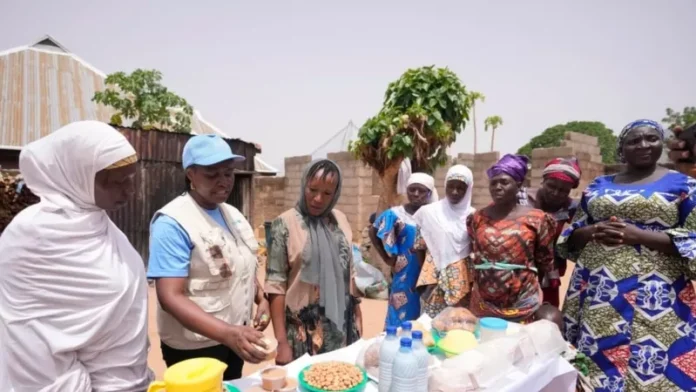UNICEF: 1 in 4 Young Children Lives in Severe Food Poverty
In today’s world, where we have access to an abundance of resources and technology, it is hard to imagine that there are still millions of children who go to bed hungry every night. Sadly, this is the harsh reality for many young children living in severe food poverty. According to a recent report by UNICEF, one in four young children around the world is facing this dire situation.
Food poverty is not just about being hungry; it is a severe lack of access to nutritious food, leading to malnutrition and stunted growth. It is a problem that affects not only the physical health of children but also their cognitive and emotional development. Children living in food poverty are more likely to suffer from health issues, miss out on education, and have a higher risk of poverty in their adult lives.
The report by UNICEF highlights that the situation is particularly alarming in sub-Saharan Africa and South Asia, where more than half of the world’s children living in food poverty reside. In these regions, children are not only facing a lack of food but also a lack of clean water, sanitation, and healthcare. The consequences of this are devastating, with millions of children dying every year from preventable causes related to malnutrition.
It is heartbreaking to think that while we have enough food to feed the world’s population, millions of children are still suffering from food poverty. The COVID-19 pandemic has only exacerbated this issue, with job losses and economic downturns pushing more families into poverty. As a result, children are facing even greater challenges in accessing nutritious food.
But amidst all this, there is hope. UNICEF, along with its partners, is working tirelessly to address this issue and ensure that every child has access to proper nutrition. The organization is providing emergency food assistance to families in crisis, promoting breastfeeding and proper infant and young child feeding practices, and supporting community-based nutrition programs.
In addition, UNICEF is also working to address the root causes of food poverty by advocating for policies and programs that promote food security and nutrition. The organization is collaborating with governments and other partners to improve agricultural practices, increase access to clean water and sanitation, and provide healthcare services to children in need.
One of the most significant achievements of UNICEF in this regard is the Scaling Up Nutrition (SUN) Movement. Launched in 2010, this global movement brings together governments, civil society, and the private sector to tackle malnutrition in all its forms. Through this movement, UNICEF has been able to reach millions of children with lifesaving nutrition interventions.
Moreover, UNICEF is also working towards building resilience in communities, particularly in areas prone to natural disasters and conflicts. By providing families with the tools and knowledge to grow their own food and diversify their diets, UNICEF is empowering them to become self-sufficient and break the cycle of poverty and malnutrition.
The efforts of UNICEF and its partners have shown promising results, with a significant reduction in the number of children living in food poverty in recent years. However, there is still a long way to go. We must all come together to support UNICEF in its mission to ensure that no child goes to bed hungry.
As individuals, we can make a difference by supporting organizations like UNICEF, donating to their cause, and spreading awareness about the issue of food poverty. We can also make conscious choices in our daily lives, such as reducing food waste, supporting local farmers, and advocating for policies that promote food security and nutrition.
In conclusion, the fact that one in four young children lives in severe food poverty is a wake-up call for all of us. We cannot turn a blind eye to this issue and must take action to ensure that every child has access to proper nutrition. Let us join hands with UNICEF and be a part of the solution to end child food poverty once and for all. Together, we can make a positive impact and give every child the chance to thrive and reach their full potential.

